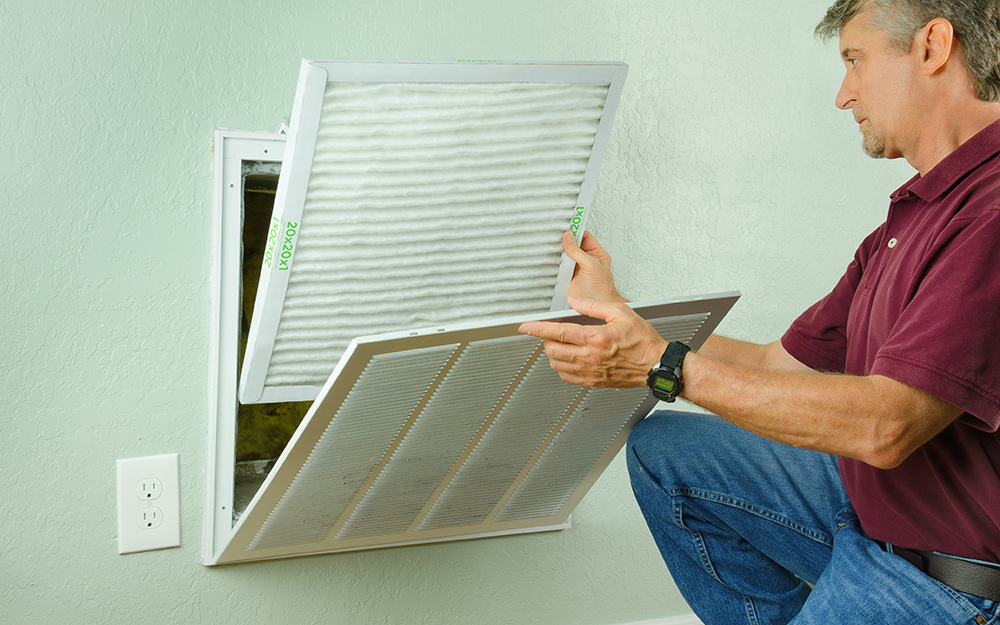The Importance of Regular Air Filter Replacement

In the world of home maintenance, certain tasks may seem small but have a significant impact on the overall comfort, health, and efficiency of a household. One such task is the regular replacement of air filters in HVAC systems. While it may be easy to overlook, neglecting this essential maintenance duty can lead to a host of problems, including compromised air quality and decreased energy efficiency. Let's delve deeper into why replacing air filters on schedule is crucial for homeowners.
Understanding the Role of Air Filters
Air filters are the unsung heroes of HVAC systems, quietly working to ensure that the air circulating in your home is clean and free of pollutants. Their job is to capture dust, pollen, pet dander, mold spores, and other airborne particles, preventing them from circulating throughout your living spaces. However, as these filters capture more and more debris over time, they become clogged, hindering their ability to perform effectively.
The Impact of Neglecting Air Filter Replacement
Diminished Air Quality: When air filters become clogged, they can no longer effectively capture airborne pollutants. As a result, these contaminants are free to recirculate throughout your home, leading to poor indoor air quality. For individuals with allergies or respiratory issues, this can exacerbate symptoms and decrease overall comfort.
Decreased Efficiency:Clogged air filters restrict airflow, forcing your HVAC system to work harder to maintain desired temperatures. This increased strain not only reduces energy efficiency but also puts additional stress on system components, potentially leading to costly repairs or premature system failure.
Higher Energy Bills:A less efficient HVAC system consumes more energy to achieve the same level of heating or cooling. As a result, homeowners may see a noticeable increase in their monthly utility bills. Over time, these additional expenses can add up, making regular air filter replacement a cost-effective solution for reducing energy consumption.
Benefits of Regular Air Filter Replacement
Improved Air Quality: By replacing air filters according to manufacturers' recommendations (typically every 1-3 months), homeowners can ensure that their HVAC system continues to effectively remove airborne pollutants. This leads to a healthier indoor environment, with cleaner air for occupants to breathe.
Enhanced Efficiency:Fresh, clean air filters allow for better airflow throughout the HVAC system. This not only reduces strain on the system but also improves energy efficiency. By maintaining optimal airflow, homeowners can enjoy lower energy bills and extend the lifespan of their HVAC equipment.
Long-Term Cost Savings:While the upfront cost of purchasing replacement air filters may seem insignificant, the long-term savings associated with improved energy efficiency and reduced maintenance expenses can be substantial. By investing in regular filter replacement, homeowners can avoid costly repairs and replacements down the road, ultimately saving money in the long run.
In Conclusion
Regular air filter replacement is a simple yet crucial aspect of home maintenance that should not be overlooked. By ensuring that air filters are replaced on schedule, homeowners can enjoy improved indoor air quality, enhanced HVAC system efficiency, and long-term cost savings. So, the next time you're tempted to postpone this seemingly mundane task, remember the significant impact it has on your home's comfort, health, and budget. Stay proactive, and breathe easier knowing you're taking steps to maintain a healthier and more efficient living environment for you and your loved ones.
Featured HVAC Contractors
Seaton Heating & AC - Oregon Air Conditioning Contractor
Loyal - South Dakota Air Conditioning Contractor
MJF Mechanical LLC - New York Air Conditioning Contractor